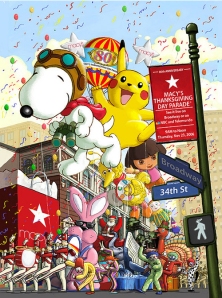 Moonrat says, “Assume whoever is reading your submission is going to be in a terrible mood when they look at page 1. You just don’t have until page 2.”
Moonrat says, “Assume whoever is reading your submission is going to be in a terrible mood when they look at page 1. You just don’t have until page 2.”
Who’s Moonrat? Well, she says, “I’m a recovering editorial assistant. I’m like most of my kind: impoverished coffee-and-gin survivalists, underpaid but ambitious, bitter but hopeful. Painfully self-conscious, woefully self-congratulatory, willfully self-indulgent. Yes, I’m white, but I’m trying to get over it. Accurate spelling (to the dismay of my boss) is not among my interests. So read forgivingly.”
I’m posting what she (I’m assuming Moonrat is a female, because the blog is called Editorial Lass) had to say about the subject back in June 2010, so you can get a feeling of what editors’ go through. I’m hoping to convince you on why working on your first page is important. Particiapting in first page prompts can help strengthen your writing muscle. Here’s Moonrat:
Heaps and heaps and heaps of manuscripts. At the moment, all of them fiction. 90% of them debut novels. All of their authors hoping desperately for a book deal, for a home for their beloved novel.
When I read submission after submission after submission–which, let’s face it, is everyday–my mind starts to dull. My eyes begin to glaze from all the white on black. My butt begins to hurt from sitting. I’m pretty hungry (because I’m always pretty hungry), and this is making me cranky. As the day wears on, I get irritable. The reading gets faster, and the disappointments stack up more quickly.
I don’t want to reject books–I want to buy them! But I can’t buy something that I’m not passionate about. So many of these manuscripts are only 60% of a book I’d want to read. There are different reasons they don’t fit the bill–maybe the content doesn’t interest me personally; maybe I don’t like the writer’s style; maybe there’s nothing special about the book, it’s just adequate. Maybe the agent didn’t do a great job of pitching it, and I was expecting something other than what I got.
Or maybe it’s a beautiful, perfect, exquisite book, exactly the book I’ve always dreamed of publishing. But I’ll never know, because the first page was CRAP.
There are different ways to create a crappy first page. Boringness. Cliche. Too many fancy schmancy words. Immersing your audience too quickly into the action. Immersing them too slowly.
Yeah, I know, it’s basically impossible to win at this game. But YOU MUST TRY.
Above all things, YOU MUST BE SPECIAL.
You can read more on her blog Editorial Lass:
http://editorialass.blogspot.com/2010/06/why-first-page-of-your-manuscript-is-so.html
You still have a few days to send in your December First Page Prompt. Editor Heather Alexander from Dial Books for Young Readers is our guest critiquer.
Please attach your double spaced, 12 point font, 23 line first age to an e-mail and send it to kathy(dot)temean(at)gmail(dot)com. Also cut and paste it into the body of the e-mail. Put “December 20th First Page Prompt” in the subject line.
 ILLUSTRATORS: Still hoping a few illustrators will step up and send something for their word prompt, “Celebrate.” I am sure some of you migh
ILLUSTRATORS: Still hoping a few illustrators will step up and send something for their word prompt, “Celebrate.” I am sure some of you migh
Usually we hear from agents as to why you should have one. The reasons below are from Moonrat over at Editorial Ass (Assistant). I have been saying the same things to members. This was posted in 2008, but it is even more valid today.
Here are the reasons you want an agent.
Agents target the editors who are best suited to your work, and thereby more likely to:
a) not reject it
b) have the mechanisms in place to publish it well. This is a more complicated task than it sounds like. You may notice if you surf publisher websites that editors often have no profile at all, not even a name mention, never mind a list of what we like and/or acquire. Unlike agents, editors do not have much incentive to disclose these details to the world, since it would get us burdened with slush and spam. But the agent has special magical information and will do all that grub work for you.
Frankly, editors rely on agents to cull out what’s good. We editors simply don’t have time to read everything in the world AND do our jobs. (Sorry.) If you don’t have an agent–particularly if you are a fiction author–editors/publishers are going to assume you *couldn’t get* an agent. This instantly knocks you to the sludgy, fetid, barnacle-encrusted bottom of the submissions barrel. Does your book deserve to be there?
Yes, it’s true, editors and agents build relationships, and yes, we like to populate our publication lists with projects that our friends or respected acquaintances represent. We only get to publish a limited number of titles each year, so it’s nice to make them count in as many respects as possible.
Editors are wary of the post-acquisition editorial process with an unagented author. Agents exist as a go-between, and as we all know, edits can get taken very, very personally. We really like agents to provide a cool head and some middle ground so we don’t tear each other’s eyes out as we try to make your book better. Also, unagented authors don’t have as much guidance on publishing protocol, and might do something innocent but very, very, very stupid, like, for example, helping a college buddy out by “giving” them an excerpt of your book to print in their church newsletter, not realizing that Time will then have to rescind its offer to serialize part of your book because it has been previously published! Yeah, editors would like to avoid situations like that.
If you submit to houses now, you will negatively impact your chances of ever finding an agent, ever. If you manage to get an agent somehow later, your poor agent will find his or her work daunting. As discussed above, you’ll probably get categorically rejected without an agent, anyway, so now your new agent has to somehow combat the rejections you’ve already racked up. Most houses do not want to see the same proposal twice, even if it has an agent the second time. So those submissions amount to bridges burned.
Without an agent, even if you manage to somehow secure a book deal, you will get nickeled and dimed to death by your own beloved publishing company. It’s not that we’re bad people at publishing houses–it’s just that we make so little money off books anyway that we go into a contract asking for what we construe as *our* best-case scenario. If you don’t know the specific questions to ask and breaks to haggle for, you’ll seriously come out of it with nothing. Oh, also, you don’t have nearly as much negotiating leverage without an agent behind you, so you can’t ask for as much.
I bet there are some of you who think you might be and exception.
1 Comments on Why You Need An Agent, last added: 11/13/2011
 Moonrat says, “Assume whoever is reading your submission is going to be in a terrible mood when they look at page 1. You just don’t have until page 2.”
Moonrat says, “Assume whoever is reading your submission is going to be in a terrible mood when they look at page 1. You just don’t have until page 2.” ILLUSTRATORS: Still hoping a few illustrators will step up and send something for their word prompt, “Celebrate.” I am sure some of you migh
ILLUSTRATORS: Still hoping a few illustrators will step up and send something for their word prompt, “Celebrate.” I am sure some of you migh













Moonrat is VERY funny lol I’m glad you found her blog. Great stuff! And my guess is “she’s” a female, too. I mean, who else would talk about overeating that way? lol